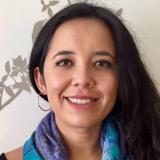Teaching English to Speakers of Other Languages (TESOL) In-Service MA
London, Bloomsbury
Study mode
Overseas tuition fees (2024/25)
£28,100
£14,050
Programme also available on a modular (flexible) basis.
Duration
1 calendar year
2 calendar years
5 calendar years
Programme starts
September 2024
Applications accepted
Applicants who require a visa:
16 Oct 2023 –
30 Apr 2024
Applications close at 5pm UK time
Applications open
Applicants who do not require a visa:
16 Oct 2023 –
30 Aug 2024
Applications close at 5pm UK time
Applications open
Visit us
Online - Open day
Graduate Open Events: Applied Linguistics and TESOL In-Service
Are you interested in investigating questions about language, culture and diversity? Our programmes bring together a wide range of expertise to explore these issues from a range of perspectives. We welcome you to book your place at our Virtual Open Event. You will meet our Programme Leaders, hear about the programmes you are interested in and have the chance to ask any questions you might have. These sessions are free and open to all.
UCL is regulated by the Office for Students.



